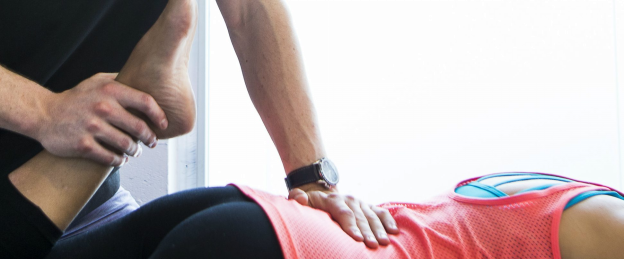
Image Credit: Coogeebay
The co-founder of Nike, Bill Bowerman, said that “if you have a body, you are an athlete.”
So, you shouldn’t think that you need to care for your body less than an athlete would. Professional athletes have team physios and spend a lot of their time recovering and recuperating from games and training.
Recovery is a serious and essential part of training and shouldn’t be bypassed. If you want longevity in your ability to be able to exercise and play sports, then you need to actively recover after every training session that you do.
Improve Mobility
No matter what your age is active physiotherapy can help you get back on track or to improve your physical mobility.
Flexibility and freedom of movement are essential to athletic performance, so working with your physio after you’ve sustained any form of injury or unease, or even just to help keep you on track, will ensure that you are able to move better for longer.
Find a good physio in South Melbourne that you can see regularly and who will then get to know you and your body.
Quick Recovery
If you are a sportsperson, then the last thing you want is to be out of action for a long period of time. Taking yourself straight to the physio after sustaining an injury will help you on your road to recovery and enable you to get back on the field or court far sooner than if you try to manage it on your own.
Exercises
Physiotherapy helps to correct issues that you may have, rather than just putting a Band-Aid on current injuries. Your physio will give you a number of exercises that will help you strengthen weaknesses or problem areas that may be the root of your injury.
Especially if you have a recurring injury, there is likely an underlying weakness or posture issues that need to be addressed in order to recover fully and get back to your full athletic potential.
Range of Motion
Many injuries clog up your range of motion. Scar tissue or tightened ligaments will create tension in your body that might restrict your range of movement.
Physiotherapy will help relieve and rehabilitate your injuries and get your mobility back to where it should be.
Stiffness and limited range of motion in one area of your body are likely to affect the rest of your mobility as your body compensates for weaknesses.
Your physio will help bring your body back into alignment and reduce the risk of further injuries stemming from an initial problem.
Reduce or Eliminate Pain
Therapeutic exercises and manual therapy techniques like soft tissue massage and mobilization or treatments such as ultrasound and electrical stimulation will help relieve you of the pain caused by a sports injury.
These therapies will also help reduce the likelihood of the pain returning by addressing the problem and eliminating physical mobility issues your body is suffering.
Regular physiotherapy will keep your body working and moving better, which in turn will reduce the chance of your needing surgery.
Even if it does come to the surgery, then physiotherapy will help you enter the operating room in better shape and will help you bounce back sooner both mentally and physically.
Surgery can be a career-ender for many athletes, but with the right physiotherapy, you will be able to return to playing, often at the same level that you left.
Physiotherapy focuses on the science of movement and will help you maintain, restore, and maximize your physical strength and capabilities as an athlete.
A good physio will empower you to strengthen your own problem areas and to correct weaknesses in your overall mobility. Treat yourself like an athlete and your body will respond as one.
About The Author:
Caitlyn Bell is an Arts student whose experiences in life make her really tougher than anyone else. She can lend you expert tips on diverse topics ranging from relationship to fashion, survival tips, making money, health, and so on. Her write-ups are a window into her thoughts and knowledge.




